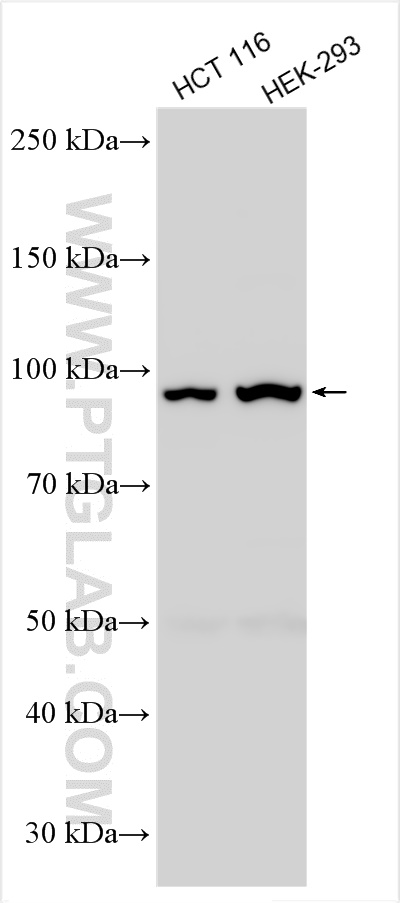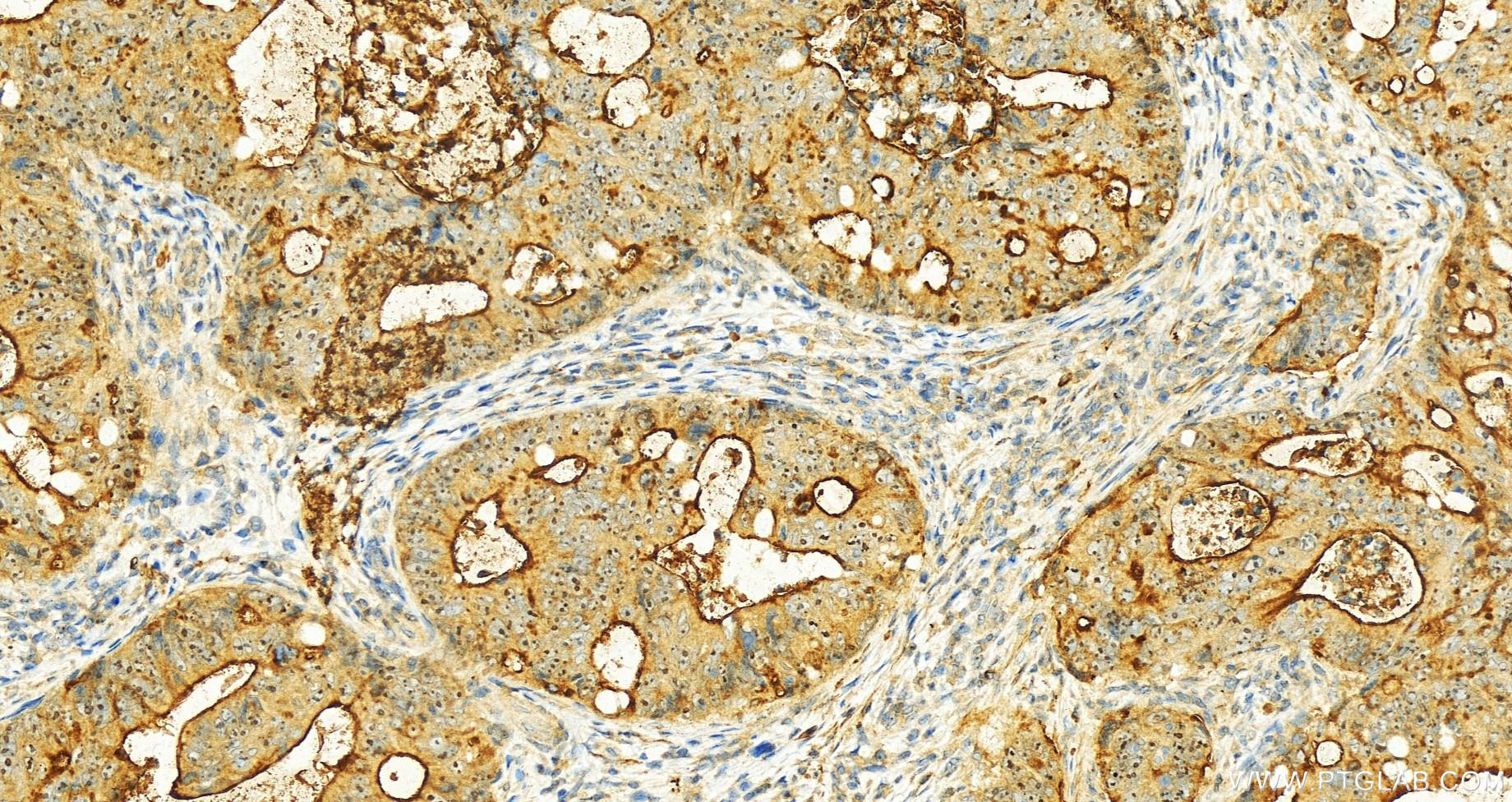验证数据展示
经过测试的应用
| Positive WB detected in | HCT 116 cells, HEK-293 cells |
| Positive IHC detected in | human colon cancer tissue Note: suggested antigen retrieval with TE buffer pH 9.0; (*) Alternatively, antigen retrieval may be performed with citrate buffer pH 6.0 |
推荐稀释比
| 应用 | 推荐稀释比 |
|---|---|
| Western Blot (WB) | WB : 1:500-1:2000 |
| Immunohistochemistry (IHC) | IHC : 1:50-1:500 |
| It is recommended that this reagent should be titrated in each testing system to obtain optimal results. | |
| Sample-dependent, Check data in validation data gallery. | |
产品信息
55487-1-AP targets MUC13 in WB, IHC, ELISA applications and shows reactivity with human samples.
| 经测试应用 | WB, IHC, ELISA Application Description |
| 经测试反应性 | human |
| 免疫原 | Peptide 种属同源性预测 |
| 宿主/亚型 | Rabbit / IgG |
| 抗体类别 | Polyclonal |
| 产品类型 | Antibody |
| 全称 | mucin 13, cell surface associated |
| 别名 | |
| 计算分子量 | 55 kDa |
| 观测分子量 | 90 kDa |
| GenBank蛋白编号 | NM_033049 |
| 基因名称 | MUC13 |
| Gene ID (NCBI) | 56667 |
| RRID | AB_3086455 |
| 偶联类型 | Unconjugated |
| 形式 | Liquid |
| 纯化方式 | Antigen affinity purification |
| UNIPROT ID | Q9H3R2 |
| 储存缓冲液 | PBS with 0.02% sodium azide and 50% glycerol pH 7.3. |
| 储存条件 | Store at -20°C. Stable for one year after shipment. Aliquoting is unnecessary for -20oC storage. |
背景介绍
Mucins (MUC) are highly glycosylated proteins that are abundantly expressed in mammalian epithelial cells. Mucin 13 (MUC13) is a member of the transmembrane glycoprotein mucins which is normally expressed in the large intestine, trachea, kidney, small intestine, and gastric epithelium (PMID: 22027689). MUC13 is involved in the tumorigenesis of multiple malignancies, including pancreatic cancer, colorectal cancer, renal cancer and lung cancer (PMID: 22027689; PMID: 31427737; PMID: 28205224; PMID: 34966453).
实验方案
| Product Specific Protocols | |
|---|---|
| WB protocol for MUC13 antibody 55487-1-AP | Download protocol |
| IHC protocol for MUC13 antibody 55487-1-AP | Download protocol |
| Standard Protocols | |
|---|---|
| Click here to view our Standard Protocols |

